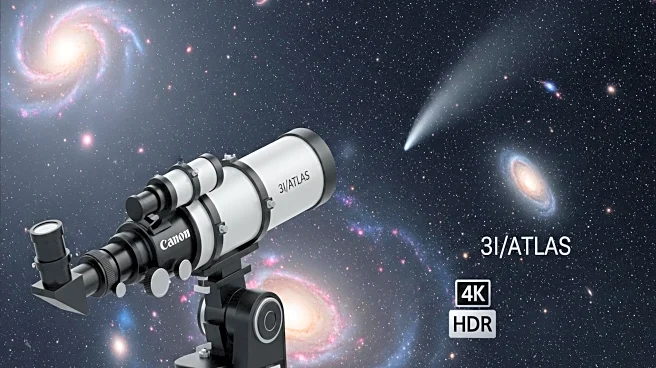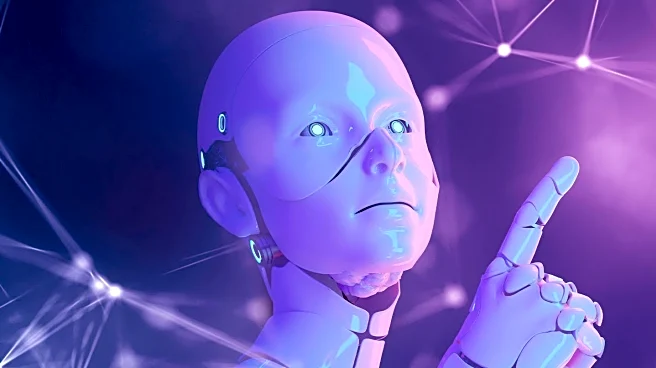What is the story about?
What's Happening?
Astronomers are closely observing the interstellar comet 3I/ATLAS, which is only the third known object of its kind to pass through our solar system. Discovered in July 2025, the comet is being studied using various telescopes, including NASA's Hubble and James Webb Space Telescopes. A live webcast event at the Gemini South Observatory in Chile allowed the public to witness real-time research as scientists measured the comet's chemical composition. The comet's nucleus is estimated to be less than 1.86 miles across, and it appears to be rich in carbon dioxide, differing from previous interstellar comets.
Why It's Important?
The study of 3I/ATLAS provides valuable insights into the building blocks of other solar systems, offering a rare opportunity to compare interstellar objects with those in our solar system. Understanding the chemical composition and behavior of such comets can enhance our knowledge of cosmic evolution and the formation of planetary systems. The public engagement through live events fosters interest in astronomy and supports scientific endeavors, potentially leading to increased funding and research opportunities.
What's Next?
As 3I/ATLAS approaches the sun, scientists plan to continue observations to confirm its chemical composition and monitor its activity. NASA is considering repurposing existing spacecraft to observe the comet when it moves behind the sun. Future public viewing events are planned, allowing continued engagement and study of this interstellar visitor. The findings may influence future missions and research on interstellar objects.
Beyond the Headlines
The observation of 3I/ATLAS raises questions about the origins and trajectories of interstellar objects, challenging our understanding of cosmic dynamics. It highlights the importance of international collaboration in astronomy and the role of advanced technology in expanding our knowledge of the universe. The event underscores the potential for public involvement in scientific research, promoting transparency and education.















